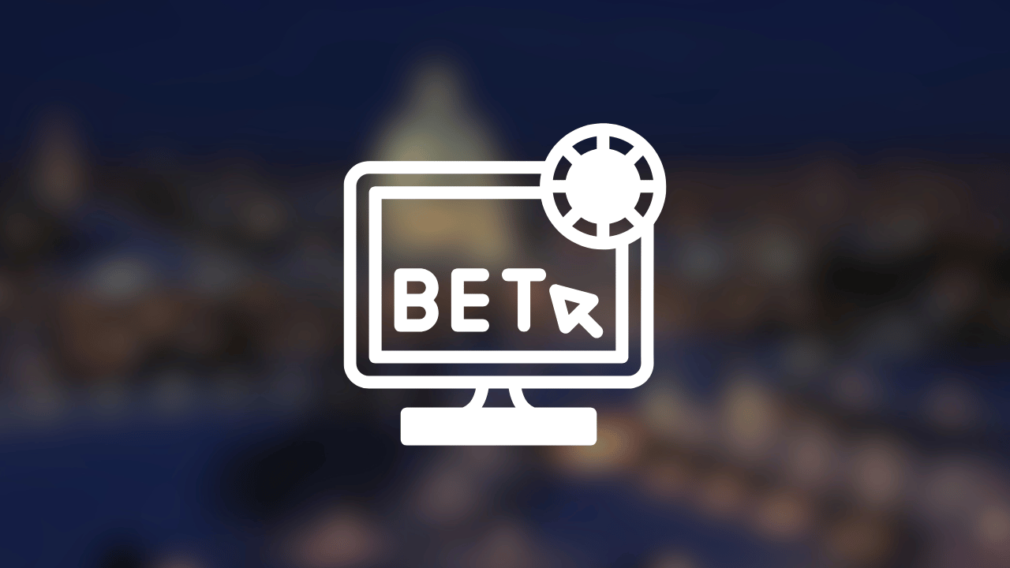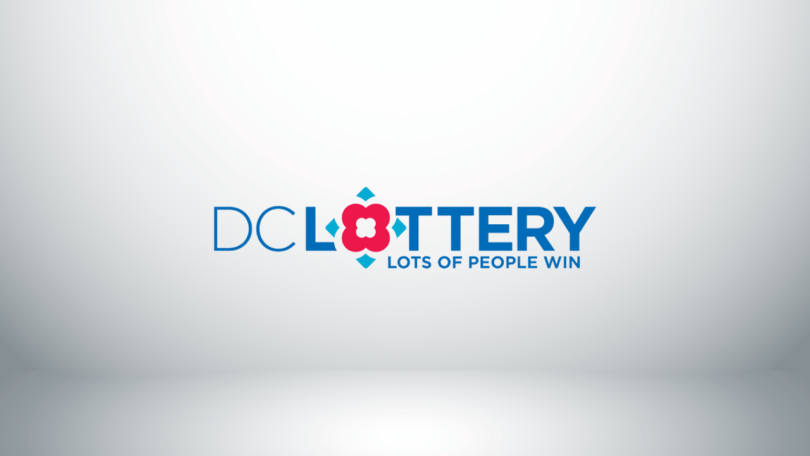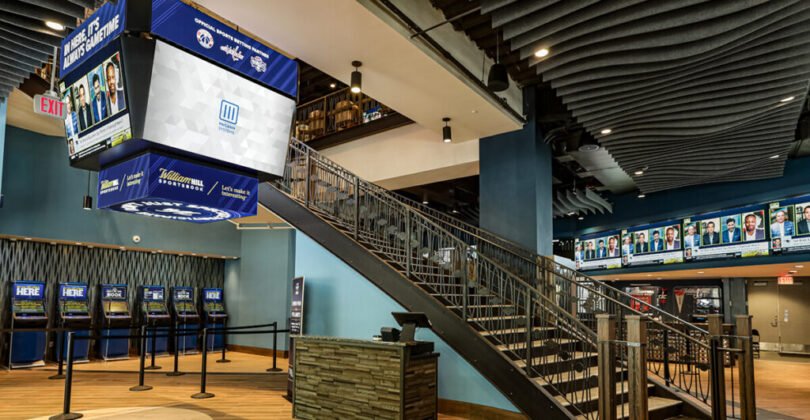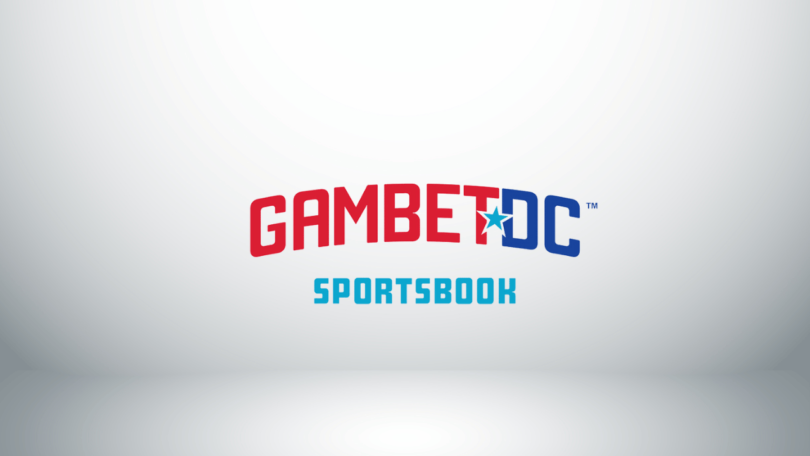Is Sports Betting Legal in Washington, DC? Everything You Need to Know
Yes, sports betting is legal in Washington, D.C. The journey began with the Sports Wagering Lottery Amendment Act of 2018 (Act 22-594), which authorized both mobile and retail sports betting. The law officially took effect on May 3, 2019, giving residents and visitors access to regulated betting options throughout the district.

Legalization and History
Washington, D.C., legalized sports betting through the Sports Wagering Lottery Amendment Act of 2018. Signed by Mayor Muriel Bowser in January 2019, this legislation officially took effect on May 3, 2019, following a mandatory congressional review. This marked the beginning of regulated sports betting in the nation’s capital.
The push for legalization stemmed from two primary goals: tapping into the growing demand for legal betting options and generating substantial public revenue. After the 2018 Supreme Court decision overturning PASPA, D.C. was among the first jurisdictions to capitalize on the opportunity.
The district’s sports betting market launched in 2020, with GambetDC as the first operator. However, the initial monopoly received widespread criticism for poor odds and a subpar user experience, which led to slow adoption. By 2024, the market opened up to additional operators like FanDuel, Caesars Sportsbook, BetMGM, and DraftKings, resulting in a more competitive and user-friendly environment.
Regulatory Framework for Sports Betting in Washington, D.C.
Washington, D.C., has established a comprehensive regulatory framework to oversee its sports betting industry, placing the D.C. Lottery at the center of operations. This dual-function institution acts as both regulator and operator, ensuring fair play and compliance across all levels of the market.
Role of the D.C. Lottery
The D.C. Lottery is tasked with critical responsibilities to maintain the integrity of the district’s sports betting market. It handles licensing, monitors operators, and enforces regulations to protect both players and public interests. By acting as a watchdog, the lottery ensures that all participants in the industry adhere to the law and uphold responsible gambling practices.

Licensing Structure
Sports betting licenses in D.C. are categorized to accommodate the diverse range of businesses participating in the market. Each category targets specific roles within the industry, creating a clear and organized system:
- Operator Licenses: For companies directly offering sports betting services.
- Management Service Providers: For firms managing operations on behalf of licensed operators.
- Suppliers: For businesses providing equipment and software to the industry.
- Employee Licenses: For individuals working within licensed sports betting establishments.
Operator licenses are further divided into three distinct classes:
- Class A Licenses: Reserved for sports venues such as Capital One Arena, Nationals Park, and Audi Field. These licenses allow both in-person and mobile betting within the venue and up to two blocks beyond its boundaries.
- Class B Licenses: Designed for smaller establishments like bars and restaurants. These licenses permit betting only on the premises, offering a hyper-localized betting experience.
- Class C Licenses: Enable D.C. sports teams to partner with licensed operators to provide online betting accessible throughout the district.
To secure a license, businesses must undergo rigorous vetting, including background checks, financial reviews, and assessments of their compliance strategies. This ensures only qualified and trustworthy entities participate in the industry.
Promoting Local Businesses
A unique aspect of D.C.’s framework is its commitment to supporting local businesses. Licensed operators are required to collaborate with Certified Business Enterprises (CBEs), with at least 35% of their operational spending directed to these locally certified companies. This policy promotes economic growth within the district while encouraging partnerships between large operators and smaller businesses.
Operators unable to meet this requirement can request an exemption, but they must demonstrate valid reasons for not achieving the set threshold.
Recent Developments in Washington DC Sports Betting
- [July 31, 2025]: DC Budget Includes Provision to Kill Lawsuit Seeking Recovery of Gambling Losses
- [July 29, 2025]: DC Office of Lottery and Gaming Joins Global Network with World Lottery Association Membership
- [June 1, 2025]: DC Mayor Pushes to Legalize Poker, Blackjack for Cash Boost
- [April 28, 2025]: Allwyn North America Launches Super Cash Bolt with DC Lottery
- [January 14, 2025]: ESPN BET Enters DC, Partners with Monumental Sports & Entertainment
Where to Bet on Sports in Washington, D.C.
Sports betting enthusiasts in Washington, D.C., have plenty of options, whether they prefer the excitement of in-person wagering or the convenience of mobile apps. The city’s sports betting landscape is diverse, offering both locals and visitors the chance to get in on the action.
Retail Sportsbooks: The Heart of the Action
For those who enjoy the thrill of placing bets in a lively setting, D.C.’s retail sportsbooks are a perfect choice. Many are located in or near iconic sports venues, blending the excitement of live games with betting opportunities.
- Caesars Sportsbook at Capital One Arena: This standout venue lets fans of the Washington Wizards (NBA) and Washington Capitals (NHL) bet while catching the action live. As the first sportsbook inside a professional sports arena in the U.S., it sets a high bar for immersive experiences.

- BetMGM Sportsbook at Nationals Park: Baseball enthusiasts can visit this sophisticated betting hub inside Nationals Park, home of the Washington Nationals (MLB). It offers a variety of wagering options, including in-play betting.
- FanDuel Sportsbook at Audi Field: Soccer fans can enjoy wagering at this location while cheering for D.C. United (MLS).
- Grand Central Sportsbook: As one of the first licensed Class B retail sportsbooks, Grand Central provides a more relaxed setting for betting enthusiasts in its two D.C. locations.
- Over Under Sportsbook Rooftop Lounge: This unique venue combines luxury and sports betting, offering a rooftop experience atop The Cloakroom.
Mobile Sports Betting: Convenience at Your Fingertips
For those who prefer the flexibility of betting on the go, D.C. offers several mobile platforms. Initially, the market was dominated by GambetDC, but issues with usability and odds paved the way for stronger competitors. Today, bettors can choose from a variety of apps, including:
To use these apps, you must be physically located within Washington, D.C., as platforms employ geofencing technology to verify your location. However, federal properties within the district, such as the National Mall, may restrict access to certain platforms, including FanDuel.
Betting Options and Restrictions in Washington, D.C.
Washington, D.C., provides sports betting enthusiasts with diverse wagering opportunities, but local regulations also impose specific restrictions. Understanding what’s allowed—and what’s off-limits—can help ensure a smooth and enjoyable betting experience.
What You Can Bet On in D.C.
Sports fans in the District have access to an impressive range of options, covering popular leagues and international events. You can place bets on professional leagues like the NFL, NBA, MLB, and NHL, or enjoy international competitions such as soccer matches, tennis tournaments, and Formula 1 races. Golf, MMA, rugby, and cricket are also approved for wagering, giving bettors plenty of variety. However, e-sports betting remains unavailable in D.C.

The types of bets offered are equally diverse. From straightforward moneyline bets to the excitement of live betting, there’s something for every style of bettor. Options include spread betting (handicap), over/under totals, parlays, and futures bets on long-term outcomes like championship winners. For more specific scenarios, prop bets let you wager on game details, such as player points or first-quarter scores.
What’s Off-Limits in D.C.
While D.C.’s sports betting scene is robust, there are notable restrictions that bettors must follow. Betting on local college teams, such as Georgetown Hoyas or George Washington Colonials, is strictly prohibited, regardless of where the game is played. Additionally, you can’t wager on college games hosted within D.C., even if they involve teams from outside the area. These rules aim to maintain the integrity of amateur sports.
Mobile platforms also face some geographic limitations. FanDuel, for instance, cannot operate on certain federal properties within D.C., and apps like BetMGM and Caesars may restrict betting to areas within two blocks of their designated venues. Moreover, bets on political events, award shows, and horse racing are entirely banned across the District.
Taxation and Revenue Allocation in Washington, D.C.
In Washington, D.C., sports betting taxation plays a pivotal role in funding public programs and initiatives. The city has implemented a structured approach to ensure that revenue generated from sports wagering benefits the community at large.
Tax Structure
All sports betting operators, including retail and mobile platforms, are subject to a 10% tax on their gross gaming revenue (GGR). This revenue is calculated as the total amount wagered minus winnings paid out to players. While there have been mentions of higher rates for mobile operators in certain sources, the standard 10% rate generally applies across all formats of betting.
To maintain transparency and accountability, operators must submit monthly reports detailing their revenue and corresponding tax payments to the District’s Treasury. These funds are held in dedicated accounts within D.C. until they are fully transferred for public use. Operators are also required to conduct annual financial audits by certified professionals to ensure compliance.
Revenue Allocation
Tax revenue from sports betting in D.C. is earmarked for a variety of public programs, creating tangible benefits for the community:
- Addiction Prevention and Treatment: The first $200,000 of annual tax revenue is allocated to programs focused on gambling addiction prevention, treatment, and research. These initiatives, overseen by the Department of Behavioral Health, aim to address potential risks associated with gambling.
- Early Childhood Development: Half of the remaining tax revenue supports the Birth-to-Three for All DC program, which focuses on early childhood education and resources for families with children under the age of three.
- Community Safety and Engagement: The other 50% of the remaining funds is directed to the Neighborhood Safety and Engagement Fund, which supports local initiatives designed to enhance public safety and strengthen community ties.
While these are the primary areas of allocation, additional tax revenue may also be invested in infrastructure projects that benefit the District as a whole.
Market Performance and Challenges in Washington, D.C.
The sports betting market in Washington, D.C., has evolved significantly, transitioning from early setbacks to a more competitive and dynamic industry. Despite notable progress, several challenges persist.
Early Struggles and Lessons Learned
GambetDC, the D.C. Lottery-operated platform, launched as the district’s first legal betting option. However, it quickly faced criticism for offering poor odds, an inconvenient interface, and frequent technical issues. Without competition, GambetDC struggled to satisfy bettors, pushing many toward retail sportsbooks like Caesars and BetMGM. Additionally, its revenue performance fell short of expectations, and the no-bid contract awarded to Intralot, GambetDC’s operator, raised concerns about transparency.

Growth Through Competition
The arrival of platforms like FanDuel, BetMGM, Caesars Sportsbook, and DraftKings energized the market. These operators introduced better odds, user-friendly apps, and innovative features, significantly improving the betting experience. FanDuel alone boosted market activity by 673% within its first month. The expanded availability of mobile betting and fewer restrictions on operators increased access, driving higher participation.
By 2023, the market reported a total handle of $154 million and $19 million in combined revenue from operators and the D.C. Lottery. Monthly growth remained strong, with the handle jumping by 48% between July and August 2024, signaling sustained momentum.
Ongoing Challenges
Despite recent success, D.C. faces stiff competition from neighboring states like Maryland and Virginia. Maryland, in particular, generates higher tax revenue due to its larger market and broader betting options. Regulatory hurdles in D.C., such as restrictions on betting on local college teams, limit the market’s appeal. Some mobile platforms still face location-based constraints, further reducing accessibility. Additionally, the lack of eSports betting options hinders the district’s ability to attract younger audiences.
Responsible Gambling Measures in Washington, D.C.
Washington, D.C. prioritizes responsible gambling, implementing various measures to protect players and promote safe betting practices. Both regulators and operators work collaboratively to ensure the market remains secure and supports those at risk of gambling-related issues.
Promoting Responsible Gambling
The D.C. Lottery and Gaming Office (OLG) plays a central role in educating players and enforcing responsible gambling standards. It runs public awareness campaigns that highlight safe betting practices and resources available to those in need. Operators are required to prominently display information on responsible gambling programs both online and in physical locations, ensuring players are aware of available support.
Training employees is another critical component. Operators must train their staff to recognize signs of gambling problems and respond appropriately. Additionally, operators are mandated to provide tools for players to set betting limits, such as session time caps or maximum spending amounts, helping individuals maintain control over their gaming habits.
Strict age verification processes ensure that minors cannot access betting platforms. Operators employ advanced technology and independent verification systems to confirm players meet the legal age requirement.
Support for Problem Gamblers
D.C. offers a robust set of resources for individuals struggling with gambling addiction. One key initiative is the self-exclusion program, which allows individuals to voluntarily block themselves from all forms of legal gambling in the district. Operators must adhere to these exclusions and face severe penalties, including potential license revocation, for breaches.
Helplines and online support are widely available, providing immediate assistance to those in need. Organizations like the National Council on Problem Gambling (NCPG), headquartered in D.C., offer a 24/7 helpline (1-800-GAMBLER), text support, and live chat options. Additional resources include groups like Gamblers Anonymous and GamTalk, which provide peer support and online tools.
The district’s Department of Behavioral Health allocates $200,000 annually from sports betting tax revenue to fund programs for prevention, treatment, and research related to gambling addiction. These initiatives ensure that those at risk have access to professional help.
Operator Tools and Collaboration
Online platforms in D.C. are required to offer features like session time reminders, betting and deposit limits, and temporary exclusion options. These tools empower players to make informed decisions and control their gambling habits.
The OLG also encourages collaboration between operators and sports leagues. By sharing data on unusual betting patterns or suspected irregularities, they work to uphold the integrity of both the betting market and professional sports.
FAQs About Sports Betting in Washington, D.C.

Is sports betting legal in Washington, D.C.?
Yes, sports betting is legal in Washington, D.C. It was authorized under the Sports Wagering Lottery Amendment Act of 2018, with the first legal wagers placed in 2020. Both retail and mobile betting are available, subject to specific regulations.
What is the minimum age for sports betting in D.C.?
The legal minimum age for sports betting in Washington, D.C., is 18 years old. However, certain operators, such as BetMGM and Caesars Sportsbook, may require bettors to be 21 years old to use their platforms or visit their retail locations.
Where can I place bets in Washington, D.C.?
You can place bets at retail sportsbooks located in venues like Capital One Arena, Nationals Park, and Audi Field. Mobile betting is also available through apps such as Caesars Sportsbook, BetMGM, FanDuel, and DraftKings, though geofencing may apply in certain federal areas.
Can I bet on local college teams in D.C.?
No, betting on local college teams like Georgetown Hoyas or American Eagles is prohibited, even if they are playing outside the district. Additionally, bets cannot be placed on any college sporting events held within D.C., regardless of the teams involved.
What types of bets can I place in D.C.?
In D.C., you can place various types of bets, including:
- Moneyline bets on the winner of a game.
- Point spreads and over/under bets.
- Parlays that combine multiple bets for bigger payouts.
- Prop bets on specific outcomes like player performances.
- Live betting, where you wager on games as they unfold in real-time.
How is sports betting taxed in D.C.?
Operators are taxed at a rate of 10% on their gross gaming revenue. The funds generated from these taxes support public programs, including education, behavioral health services, and community safety initiatives.
What resources are available for responsible gambling?
D.C. offers a range of support services for responsible gambling, including:
- A self-exclusion program to voluntarily block access to betting platforms.
- A 24/7 helpline at 1-800-GAMBLER for confidential support.
- Resources and group support through organizations like Gamblers Anonymous and GamTalk.
Operators also provide tools like session limits and deposit caps to help players gamble responsibly.
Recommended
